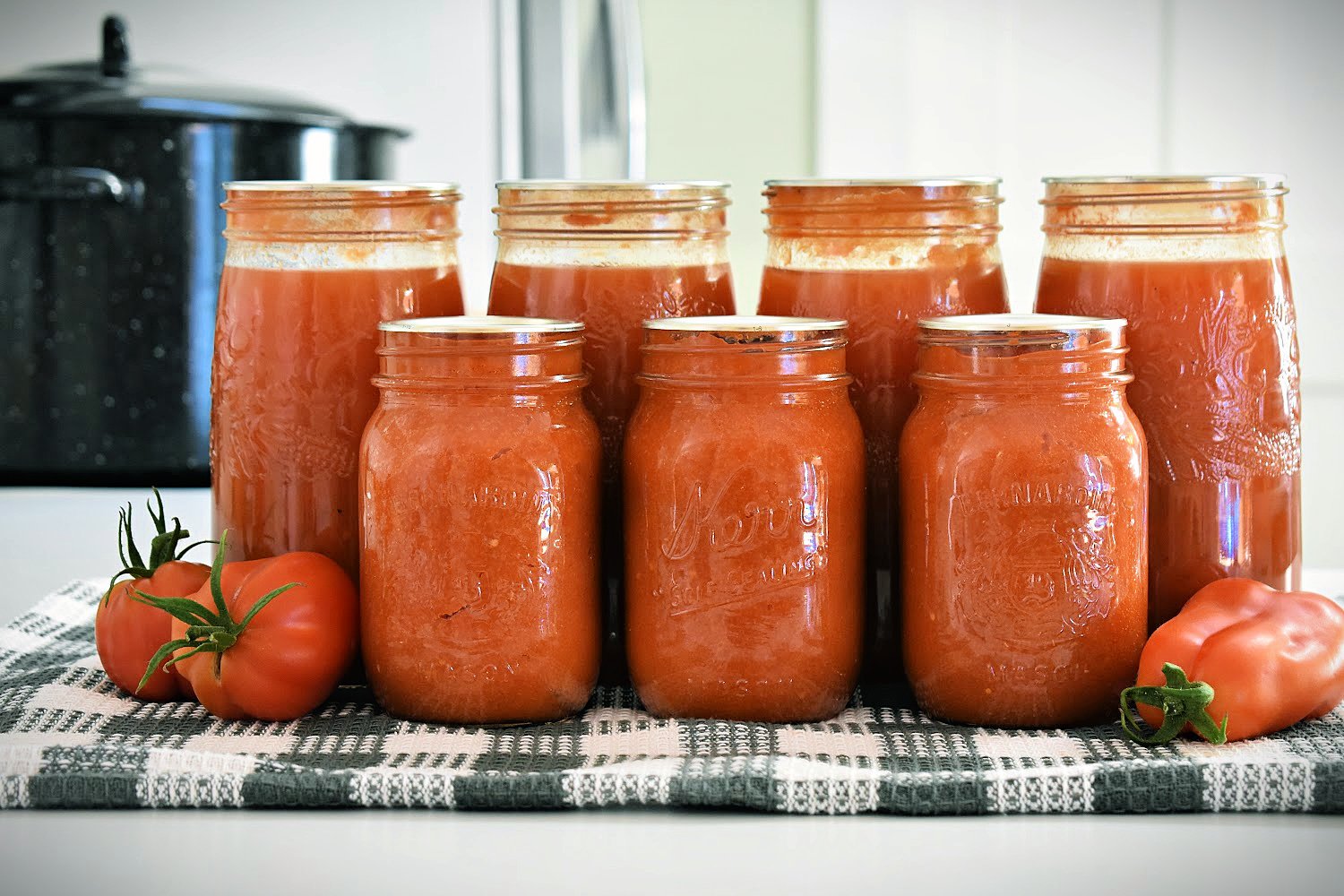

Articles
How To Store Homemade Sauces
Modified: January 18, 2024
Learn the best methods for storing homemade sauces in this helpful articles guide. Keep your sauces fresh and flavorful for longer with these expert tips.
(Many of the links in this article redirect to a specific reviewed product. Your purchase of these products through affiliate links helps to generate commission for Storables.com, at no extra cost. Learn more)
Introduction
Homemade sauces can add flavor and richness to any meal, whether it’s a tangy barbecue sauce, a creamy Alfredo sauce, or a spicy salsa. Making your own sauces allows you to customize the ingredients and create unique flavors that store-bought options simply cannot match. However, once you’ve made a delicious homemade sauce, it’s important to know how to store it properly to preserve its freshness and taste.
In this article, we will guide you through the process of storing homemade sauces to ensure they remain safe to consume and maintain their quality for as long as possible. From choosing the right containers to proper labeling and refrigeration guidelines, we will cover all the essential steps to help you store your homemade sauces like a pro.
Proper storage of homemade sauces is crucial to prevent spoilage and maintain flavor. Factors such as temperature, air exposure, and container choice can greatly influence the shelf life of your sauces. By following the tips and guidelines outlined in this article, you can extend the life of your sauces and have them ready to enhance your favorite dishes whenever you need them.
So, let’s dive in and learn how to store your homemade sauces for maximum freshness and flavor!
Key Takeaways:
- Proper storage of homemade sauces is crucial for maintaining flavor and safety. Choose the right containers, label them properly, and follow refrigeration and freezing guidelines to ensure your sauces remain fresh and delicious.
- Thaw and use frozen sauces carefully to maintain their taste and texture. Pay attention to shelf life, food safety, and storage tips to ensure your homemade sauces are enjoyed at their best.
Read more: How To Store Homemade Tomato Sauce
Choosing the Right Containers
Choosing the right containers for storing your homemade sauces is essential for maintaining their quality and preventing contamination. Here are some factors to consider when selecting containers:
- Material: Opt for containers made of glass or food-grade plastic. Both options are non-reactive and won’t leach harmful chemicals into your sauces.
- Tight Seal: Ensure that the containers have tight-fitting lids to prevent air and moisture from entering. This will help preserve the flavor and freshness of your sauces.
- Size: Use containers that are appropriate for the amount of sauce you have. Avoid leaving excessive headspace, as it can promote bacterial growth.
- Freezer-safe: If you plan to freeze your sauces, make sure the containers you choose are freezer-safe to prevent them from cracking or breaking under freezing temperatures.
Glass Mason jars are a popular choice for storing homemade sauces. They are durable, easy to clean, and offer an airtight seal. Additionally, they are transparent, allowing you to easily identify the contents of each jar.
When using plastic containers, look for those labeled as BPA-free and specifically designed for food storage. These containers are usually dishwasher-safe and can withstand temperature changes without warping or leaching chemicals into the sauce.
Remember to check the lids of your containers for any signs of wear or damage. Damaged lids may not provide a proper seal, leading to air exposure and spoilage.
It’s also worth noting that it’s a good idea to have a variety of container sizes on hand. This way, you can portion your sauces into smaller containers, allowing you to thaw and use only what you need without having to thaw the entire batch.
By choosing the right containers, you can ensure that your homemade sauces remain fresh, flavorful, and safe to consume.
Proper Labeling
Properly labeling your homemade sauces is crucial for easy identification, ensuring food safety, and providing important information about the sauce. Here are some tips for effective labeling:
- Name of the Sauce: Clearly write the name of the sauce on the label. This will make it easier to find the desired sauce when you have multiple varieties stored.
- Date: Always include the date when the sauce was made or stored. This helps you keep track of the freshness and shelf life of the sauce.
- Ingredients: List all the ingredients used in the sauce. This is especially important for individuals with dietary restrictions or allergies.
- Storage Instructions: Include instructions for proper storage, such as refrigeration or freezing, to ensure that the sauce remains safe and maintains its quality.
- Additional Notes: You can add any additional notes or reminders, such as usage tips or flavor profiles.
Labeling your containers can be as simple as using adhesive labels or writing directly on the container with a permanent marker. Alternatively, you can use masking tape and write the necessary information on it.
Ensure that the labels are visible and won’t easily smudge or fade over time. If you’re using containers that will be washed and reused, consider using labels that can be easily removed and reapplied.
Proper labeling not only helps you identify your homemade sauces but also provides important information in case you plan to share or give them as gifts. It’s a small but important step that contributes to the overall organization and safety of your homemade sauce collection.
Now that you know about proper labeling, let’s move on to understanding the refrigeration guidelines for storing homemade sauces.
Refrigeration Guidelines
Refrigeration is a common method of storing homemade sauces, especially if you plan to use them in the near future. Here are some guidelines to follow when refrigerating your sauces:
- Cool Before Refrigerating: Allow your homemade sauce to cool completely before placing it in the refrigerator. Putting hot sauce directly into the fridge can raise the temperature inside, potentially affecting the quality of other perishable items.
- Airtight Containers: Transfer the sauce into airtight containers before refrigerating. This helps maintain its freshness and prevents odors from other foods in the refrigerator from seeping into the sauce.
- Refrigeration Temperature: Set your refrigerator to a temperature of 40°F (4°C) or below. This ensures that your sauces stay cool enough to prevent bacterial growth.
- Refrigerator Shelf Life: Most homemade sauces can be safely stored in the refrigerator for 3-4 days. However, certain sauces like vinegar-based hot sauces or salsas may have a longer shelf life due to their acidity.
It’s important to note that the quality and flavor of homemade sauces may start to decline after a few days in the refrigerator. Therefore, it is recommended to consume or use the sauce within the specified shelf life for the best results.
If you find that you won’t be able to use the sauce within the recommended timeframe, consider freezing it to extend its shelf life. We will discuss freezing methods in the next section.
By following these refrigeration guidelines, you can keep your homemade sauces fresh and safe to consume whenever you’re ready to enjoy them.
Freezing Homemade Sauces
Freezing is a great method for extending the shelf life of your homemade sauces. It allows you to prepare larger batches and store them for longer periods. Here are some steps to follow when freezing your sauces:
- Cool the Sauce: Similar to refrigeration, make sure to let the sauce cool completely before freezing it. This helps maintain the quality and avoids any moisture that can lead to freezer burn.
- Choose Freezer-Safe Containers: Use freezer-safe containers or freezer bags specifically designed to withstand freezing temperatures. These containers should have airtight seals to prevent freezer burn and maintain the flavor of the sauce.
- Portion the Sauce: Divide the sauce into smaller portions before freezing. This allows you to thaw and use only what you need, minimizing waste. Consider using ice cube trays or small containers for individual servings.
- Leave Head Space: Leave some headspace in your containers to allow for expansion during freezing. This prevents containers from cracking or bursting.
- Label and Date: Properly label each container with the name of the sauce and the date it was frozen. This helps you keep track of how long the sauce has been stored and ensures you can easily identify it later.
- Freeze Flat: If you are using freezer bags, flatten them before freezing. This allows for easier storage and quicker thawing.
When stored properly in the freezer, homemade sauces can typically keep their quality for up to 3-4 months. However, it’s worth noting that some sauces may start to lose flavor or texture after a longer period, so it’s best to use them within this timeframe.
Now that you know how to freeze your homemade sauces, let’s move on to understanding how to thaw and use them effectively.
Store homemade sauces in airtight containers to prevent spoilage and maintain freshness. Label containers with the date made and use within a few days for best quality.
Read more: How To Store Homemade Hot Sauce
Thawing and Using Frozen Sauces
Thawing frozen sauces properly is essential to maintain their taste and texture. Here are some methods for thawing and using your frozen homemade sauces:
- Refrigerator Thawing: The safest method is to thaw your frozen sauce in the refrigerator. Simply transfer the sauce from the freezer to the refrigerator and allow it to thaw slowly overnight or for several hours. This gradual thawing preserves the quality of the sauce.
- Cold Water Bath: If you need to thaw the sauce more quickly, you can use a cold water bath. Place the frozen container of sauce in a larger bowl of cold water. Make sure the container is tightly sealed to prevent water from getting in. Change the water every 30 minutes to help maintain a consistent temperature. This method can usually thaw the sauce within a couple of hours.
- Microwave Thawing: In a pinch, you can use a microwave to thaw your sauce. Remove the frozen sauce from its container and transfer it to a microwave-safe dish. Use the defrost setting or low power mode and heat in short bursts, stirring occasionally. Be cautious not to overheat the sauce, as it can cook unevenly or become too hot in certain areas.
After thawing, it’s important to use the sauce as soon as possible. Avoid refreezing thawed sauces, as this can impact their quality and increase the risk of contamination.
When using thawed sauces, make sure to heat them thoroughly before consuming. This helps kill any potential bacteria that may have grown during the thawing process. Simply heat the sauce in a saucepan or microwave until it reaches a safe internal temperature.
Frozen sauces can be used in various dishes, such as pasta, stir-fries, soups, and marinades. Get creative and experiment with different recipes to make the most of your homemade sauces!
By following these thawing and usage guidelines, you can enjoy the convenience of using your frozen homemade sauces while maintaining their quality and flavor.
Shelf Life and Food Safety
Understanding the shelf life and ensuring food safety are important aspects of storing homemade sauces. Here are some general guidelines to keep in mind:
- Shelf Life: The shelf life of homemade sauces can vary depending on the ingredients used and the storage conditions. As a general rule, most sauces stored in the refrigerator can last for 3-4 days. However, acidic sauces like vinegar-based hot sauces or salsas may have a longer shelf life due to their high acidity levels.
- Expiration Dates: Pay attention to the expiration dates of perishable ingredients used in your sauces, such as dairy or meat products. Homemade sauces that contain these ingredients should be consumed within a shorter timeframe to minimize the risk of foodborne illnesses.
- Signs of Spoilage: Always inspect your homemade sauces before using them. If you notice any signs of mold, unusual texture, off-color, or an unpleasant odor, discard the sauce immediately. It’s better to be safe than sorry when it comes to food safety.
- Food Safety Practices: When preparing and storing homemade sauces, it’s important to follow food safety practices. Wash your hands and utensils thoroughly before handling ingredients, use clean and sanitized containers, and store sauces at proper temperatures.
- Refrigerator Maintenance: Regularly clean and organize your refrigerator to prevent cross-contamination and maintain a safe storage environment for your sauces. Dispose of any expired or spoiled sauces to avoid any potential health risks.
It’s worth noting that these guidelines are general recommendations, and specific sauces may have different storage requirements. Be sure to consult recipe instructions or reliable sources for specific information about the shelf life and storage of your homemade sauces.
By following proper food safety practices, regularly inspecting your sauces, and being mindful of expiration dates, you can ensure the safety of your homemade sauces and enjoy them without any concerns.
Tips for Storing Homemade Sauces
To optimize the storage of your homemade sauces and ensure their longevity and quality, consider the following helpful tips:
- Cool Completely: Allow your sauces to cool completely before storing them. This prevents condensation and helps maintain the integrity of the sauce.
- Portion Control: Divide your sauces into smaller portions before storing. This allows you to thaw only what you need and prevents waste.
- Vacuum Sealing: Consider investing in a vacuum sealer to remove excess air from containers before sealing. This helps prolong shelf life and prevents freezer burn.
- Layering: If you plan to freeze sauces in a large container, consider layering them with plastic wrap to create individual portions. This allows you to remove just a portion without thawing the entire container.
- Double Bagging: When using freezer bags, double bagging can provide an extra layer of protection against freezer burn.
- Organize Your Freezer: Keep your sauces in a designated area of your freezer and label them for easy identification. This will prevent them from getting lost or forgotten among other frozen items.
- Rotate Stock: Practice the “first in, first out” method to ensure you use older sauces before newer ones. This prevents sauces from being stored for an excessive amount of time.
- Regular Inspection: Regularly inspect your stored sauces for any signs of spoilage or freezer burn. Remove any sauces that show signs of deterioration.
- Temperature Monitoring: Ensure your freezer is set at the appropriate temperature (0°F or below) to maintain the quality of your frozen sauces.
Following these tips can help you store your homemade sauces effectively, maximize their freshness, and reduce food waste.
Conclusion
Storing homemade sauces properly is essential for maintaining their flavor, freshness, and safety. By following the guidelines and tips outlined in this article, you can ensure that your homemade sauces remain delicious and ready to enhance your favorite meals whenever you need them.
Choosing the right containers made of glass or food-grade plastic with tight seals will help preserve the quality of your sauces. Proper labeling provides important information and allows for easy identification of the stored sauces. Refrigeration guidelines, including cooling before refrigerating and setting the refrigerator temperature below 40°F (4°C), ensure the sauces remain safe to consume for a few days.
Freezing homemade sauces is a great option for extending their shelf life. By using freezer-safe containers, portioning the sauces, and labeling them correctly, you can enjoy the convenience of having homemade sauces on hand for up to 3-4 months.
When thawing and using frozen sauces, following safe methods such as refrigerator thawing or using a cold water bath ensures the sauces maintain their taste and texture. Heating the sauce thoroughly before consuming eliminates any potential bacteria that may have developed during the thawing process.
Understanding the shelf life of homemade sauces, recognizing signs of spoilage, and practicing proper food safety are crucial aspects of storing sauces. Regularly inspecting your sauces, maintaining a clean refrigerator, and following food safety practices contribute to the overall quality and safety of your homemade sauces.
By implementing the tips provided in this article, such as cooling sauces completely, portion control, vacuum sealing, and organizing your freezer, you can optimize the storage of your homemade sauces and minimize food waste.
In conclusion, storing homemade sauces requires attention to detail and following proper guidelines. With the right containers, proper labeling, and knowledge of refrigeration and freezing techniques, you can ensure that your homemade sauces are well-preserved, safe to consume, and ready to elevate your meals with their delicious flavors.
Frequently Asked Questions about How To Store Homemade Sauces
Was this page helpful?
At Storables.com, we guarantee accurate and reliable information. Our content, validated by Expert Board Contributors, is crafted following stringent Editorial Policies. We're committed to providing you with well-researched, expert-backed insights for all your informational needs.
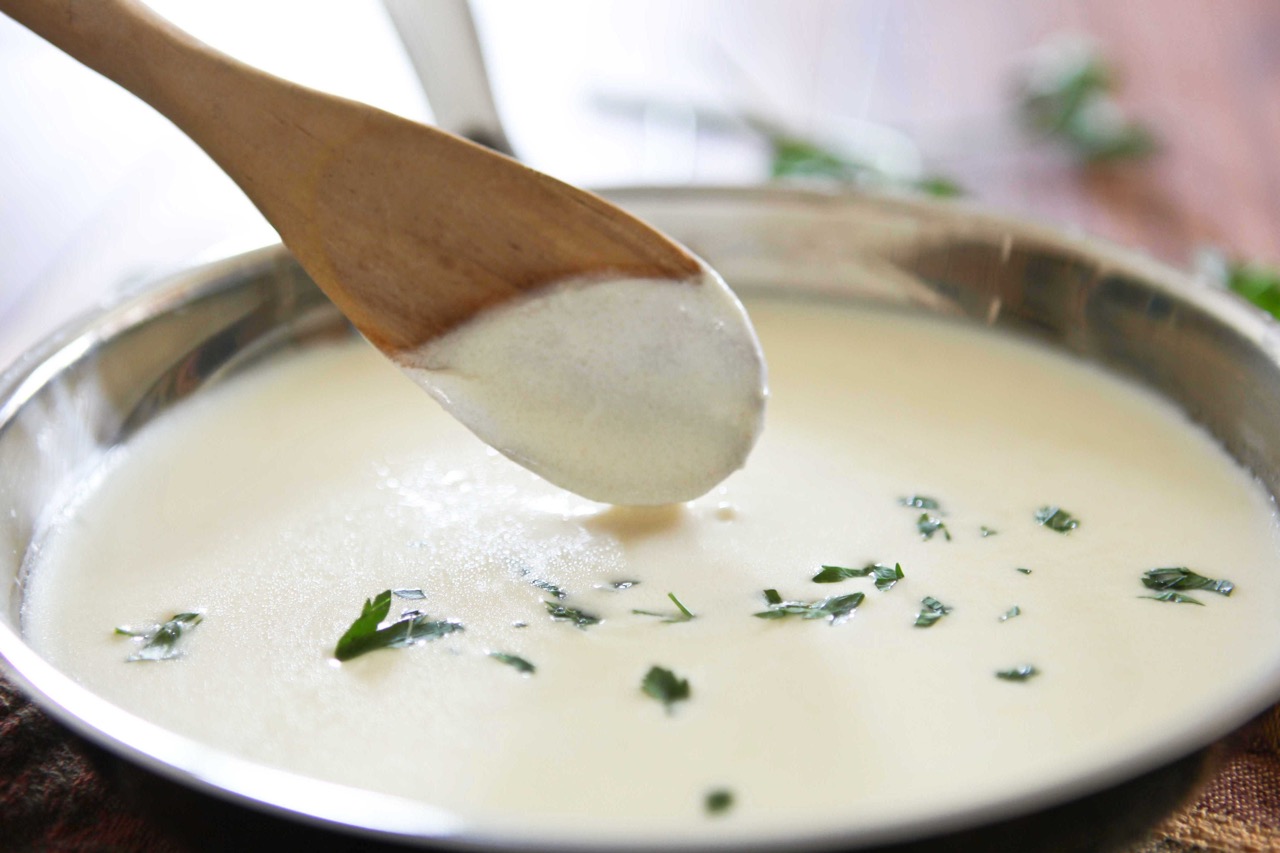
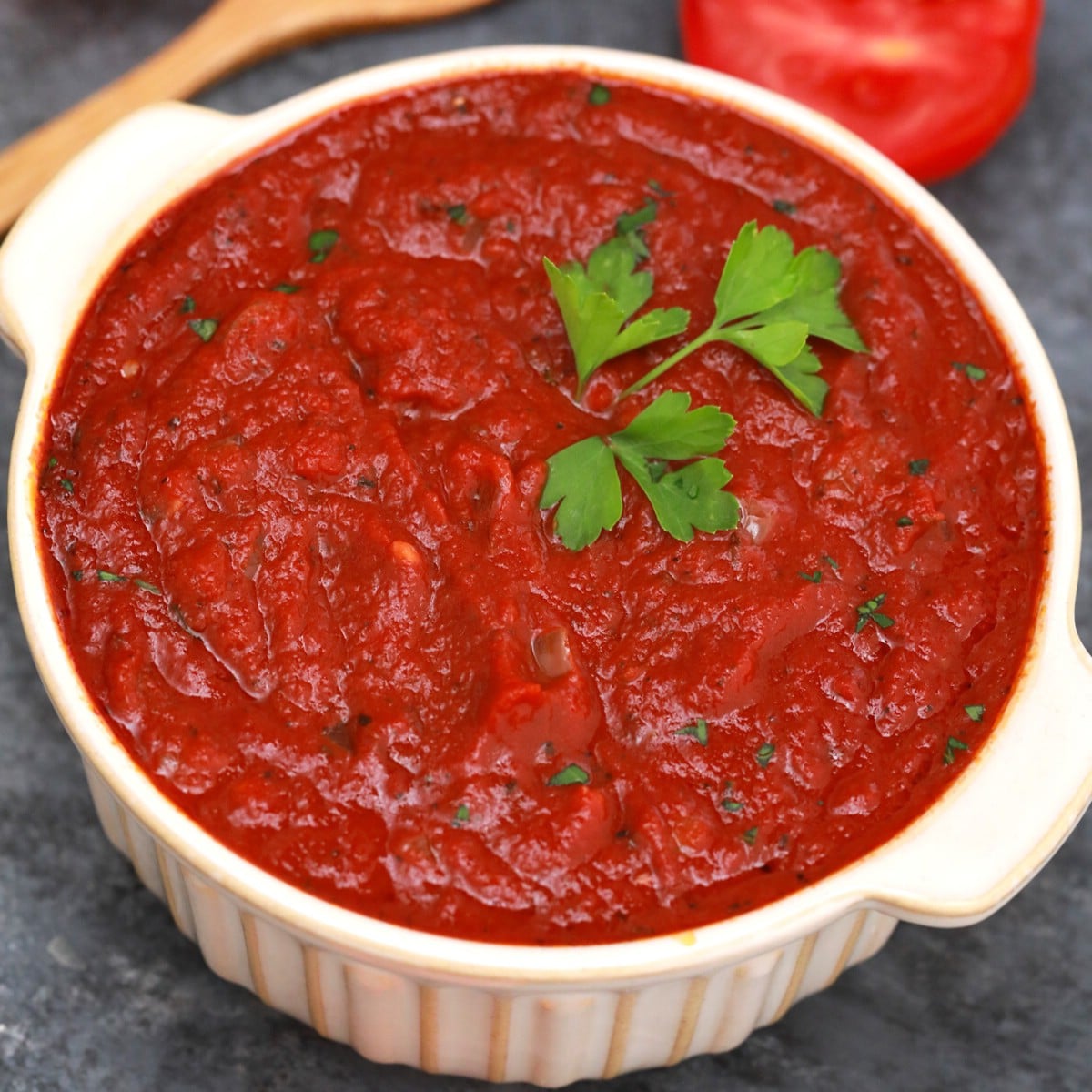
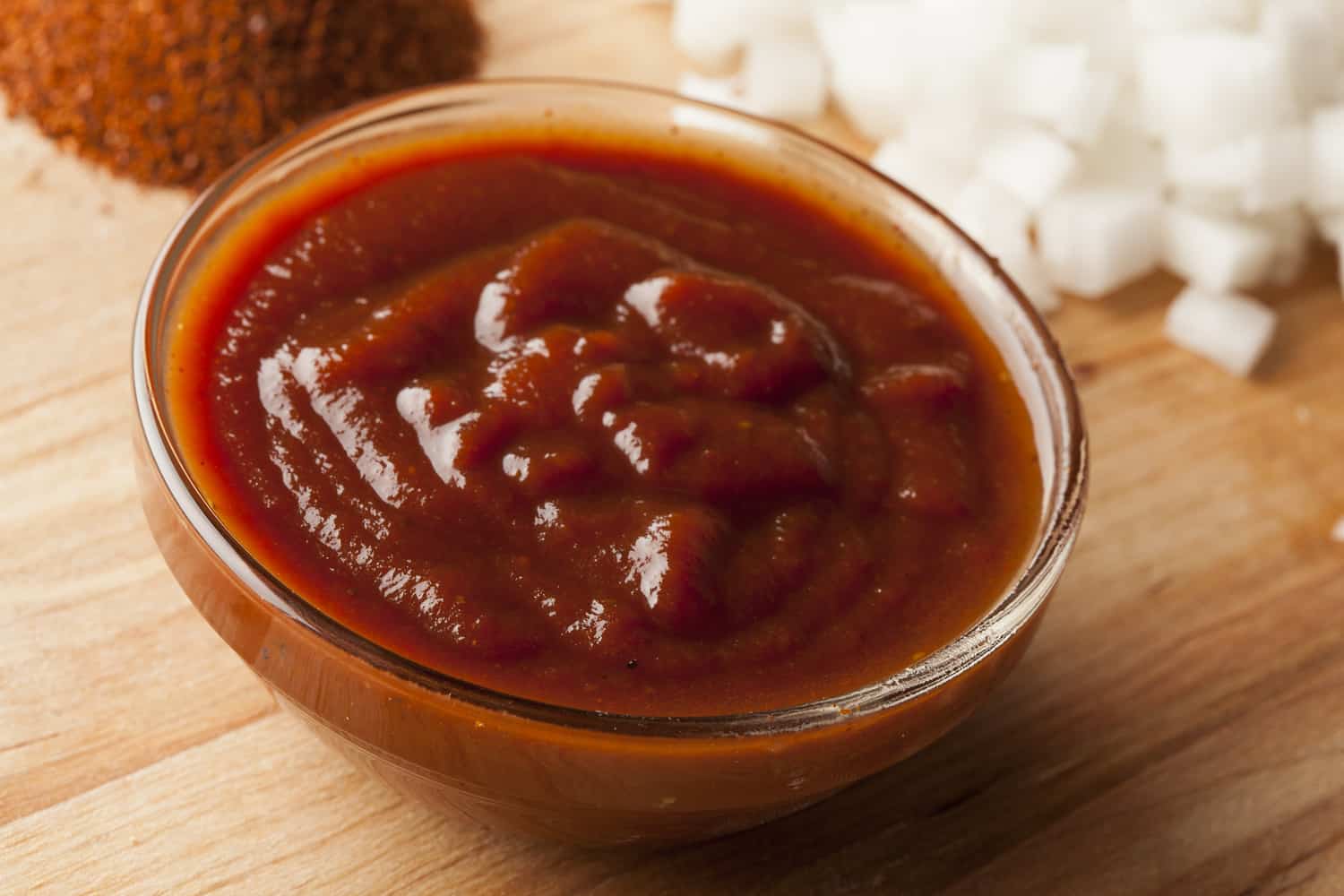
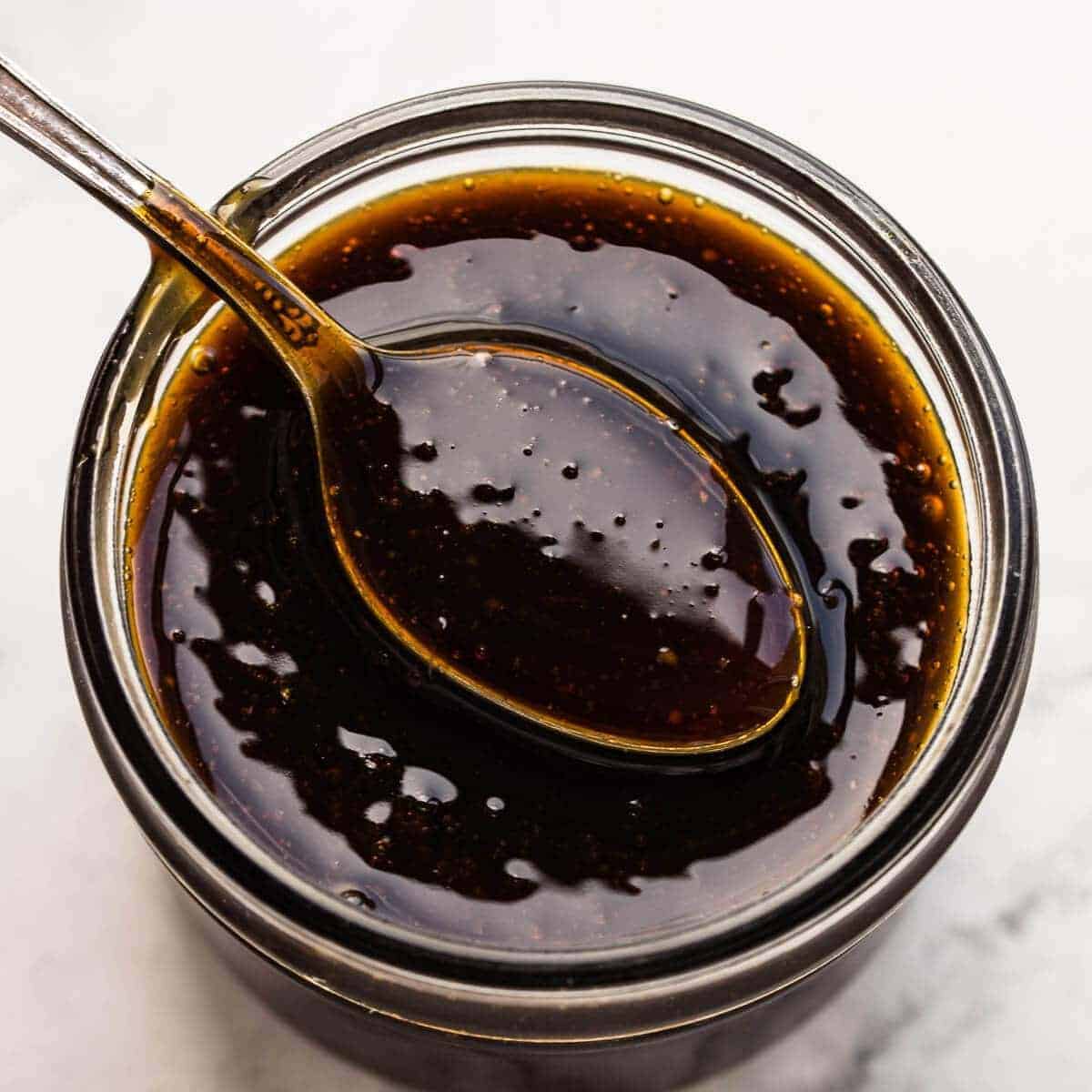
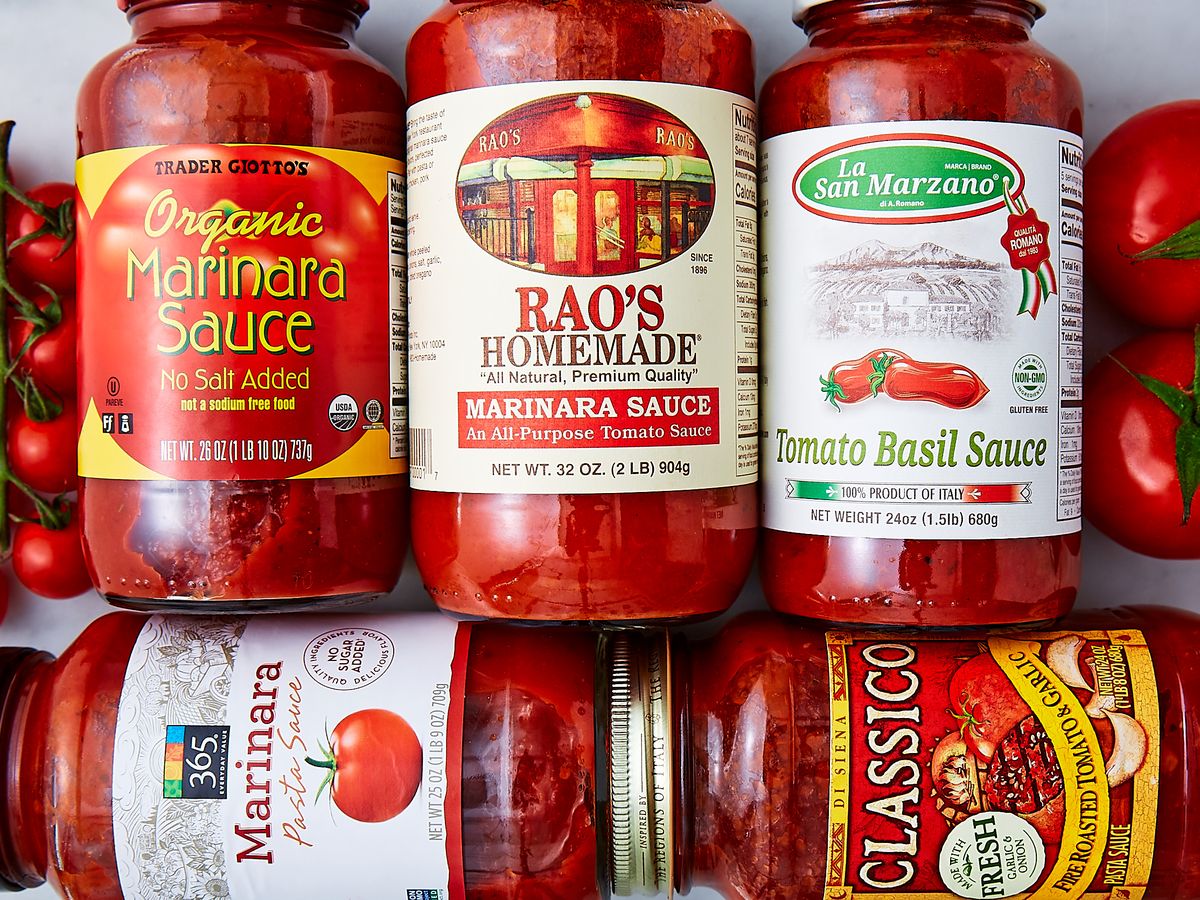
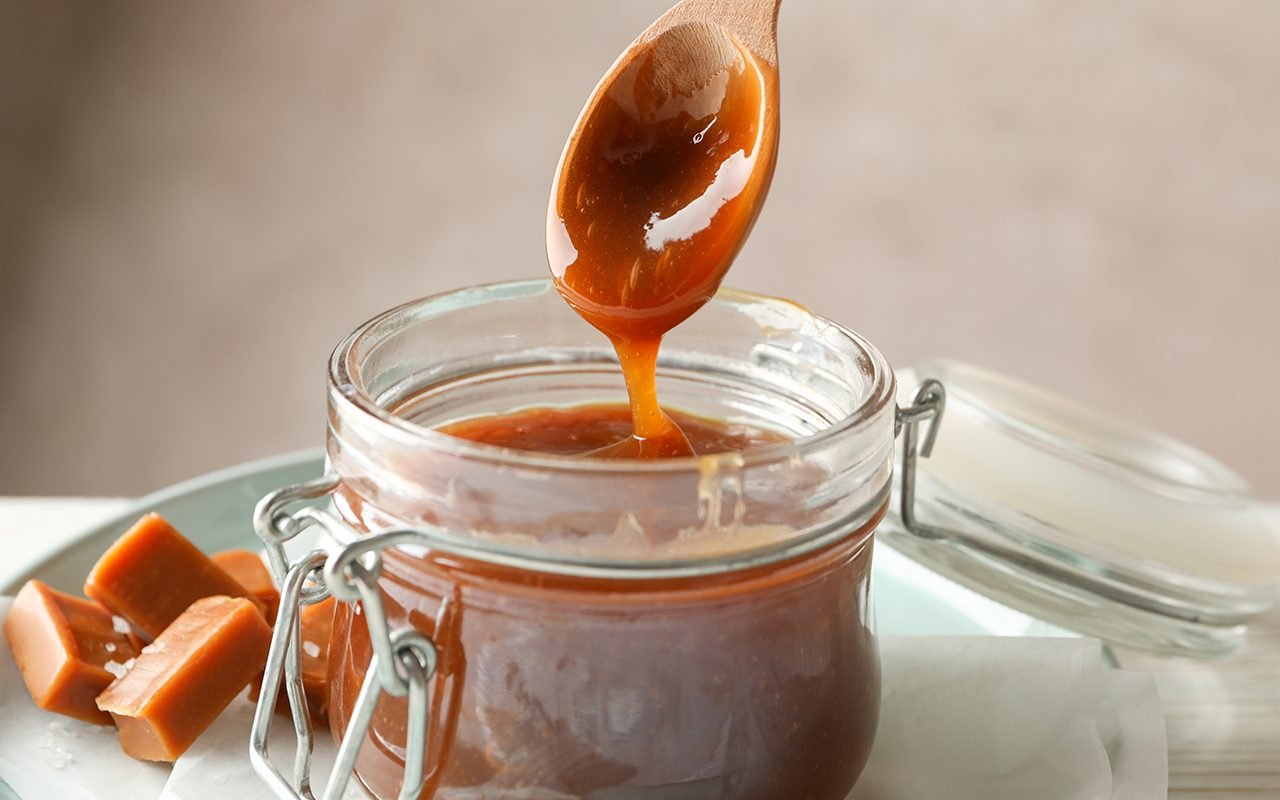
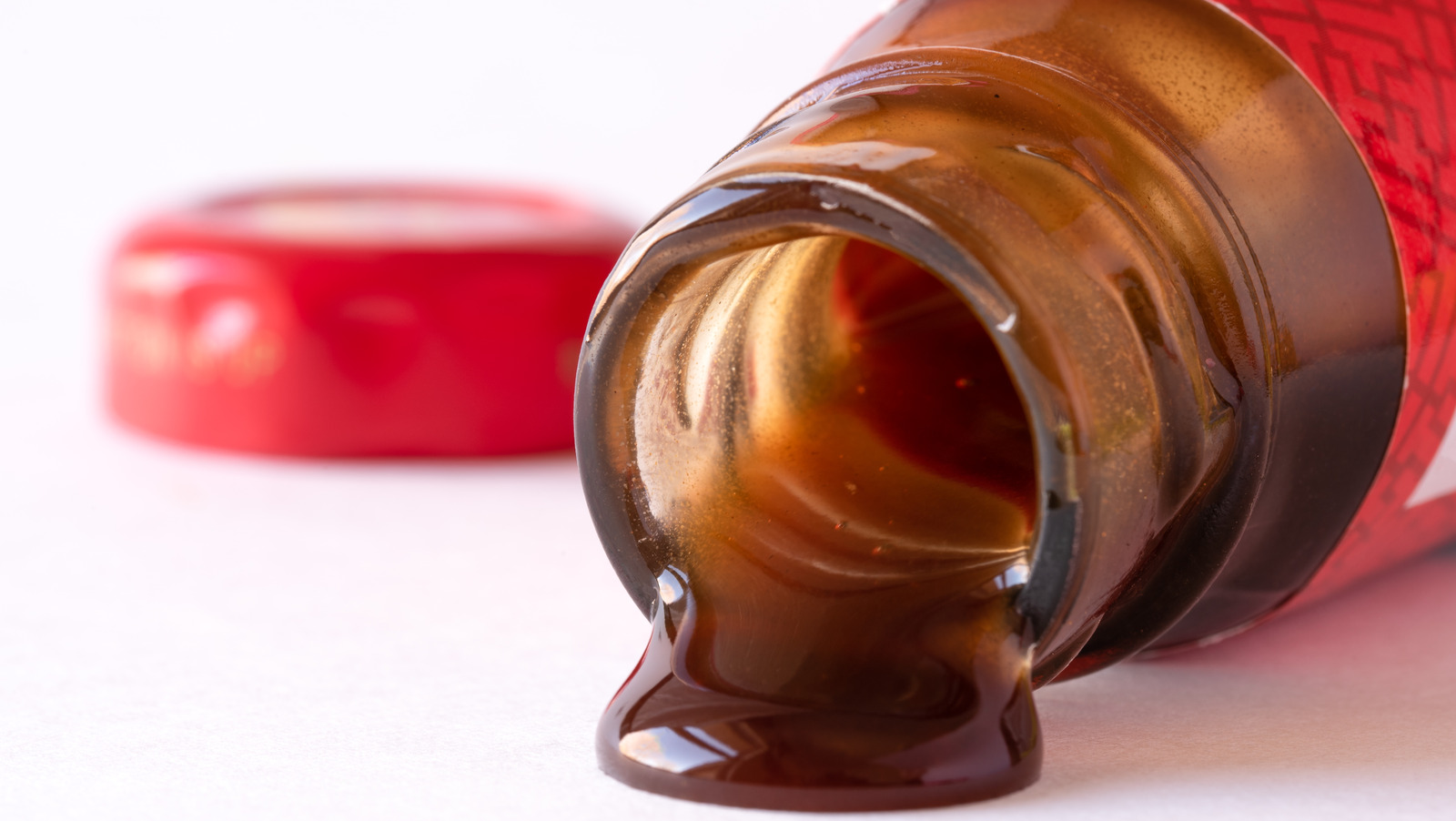
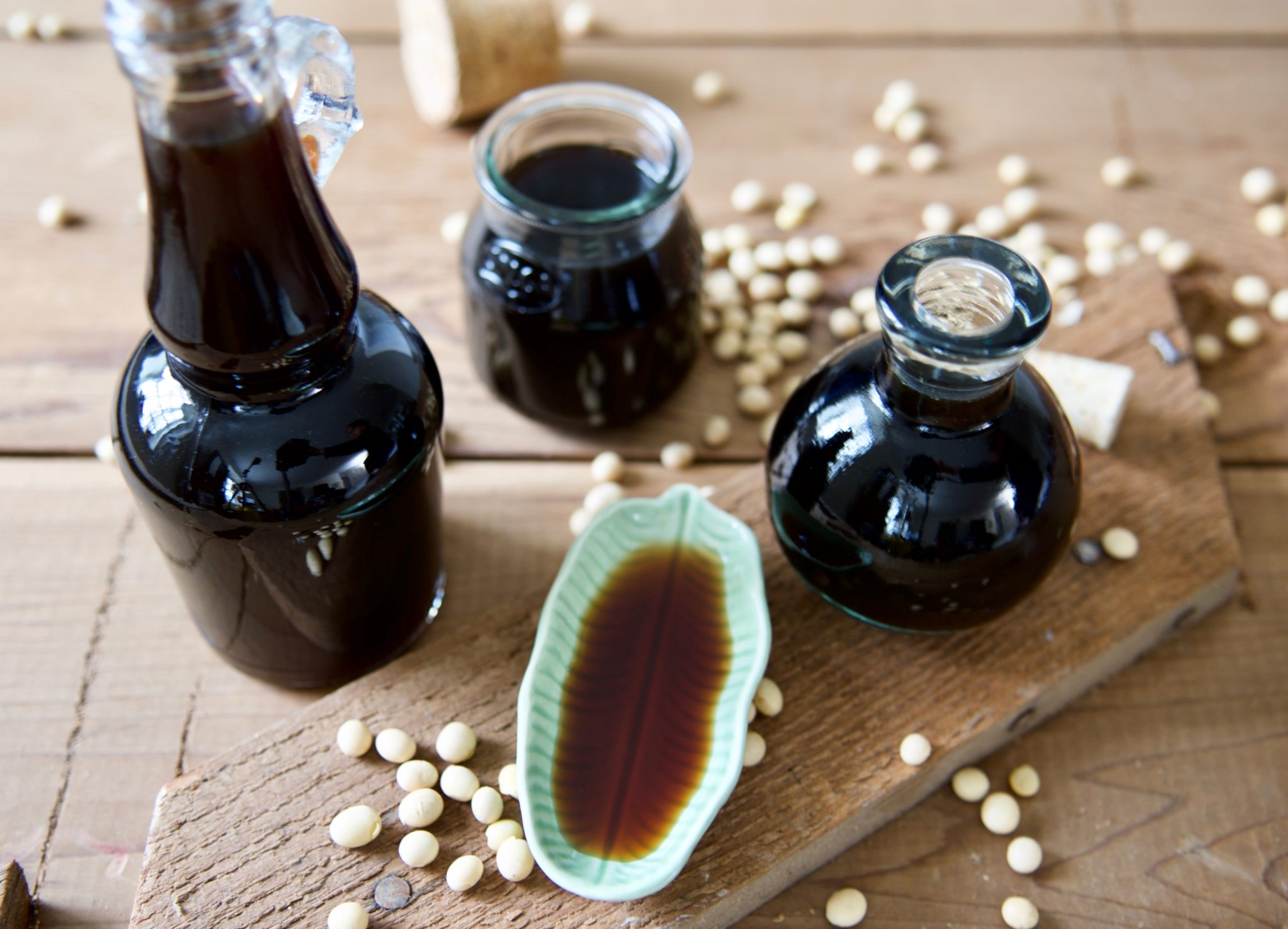
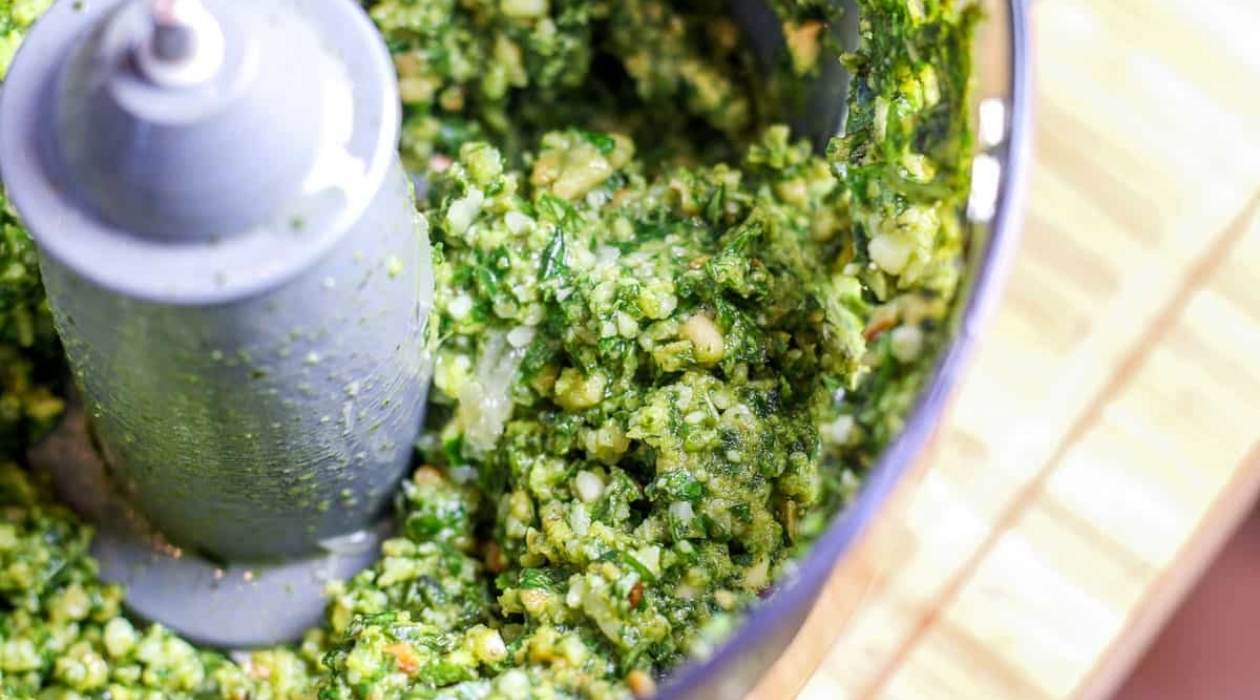


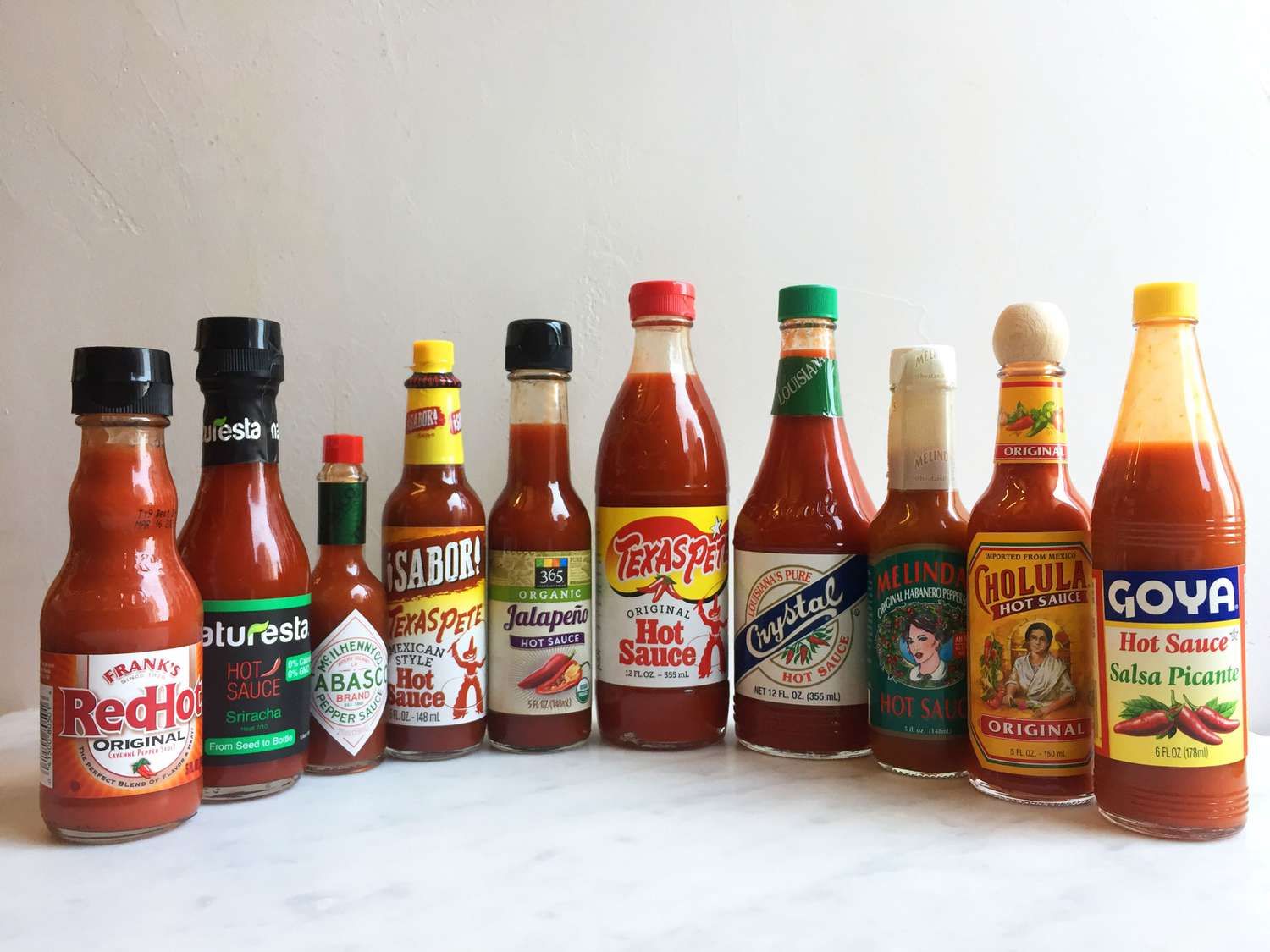
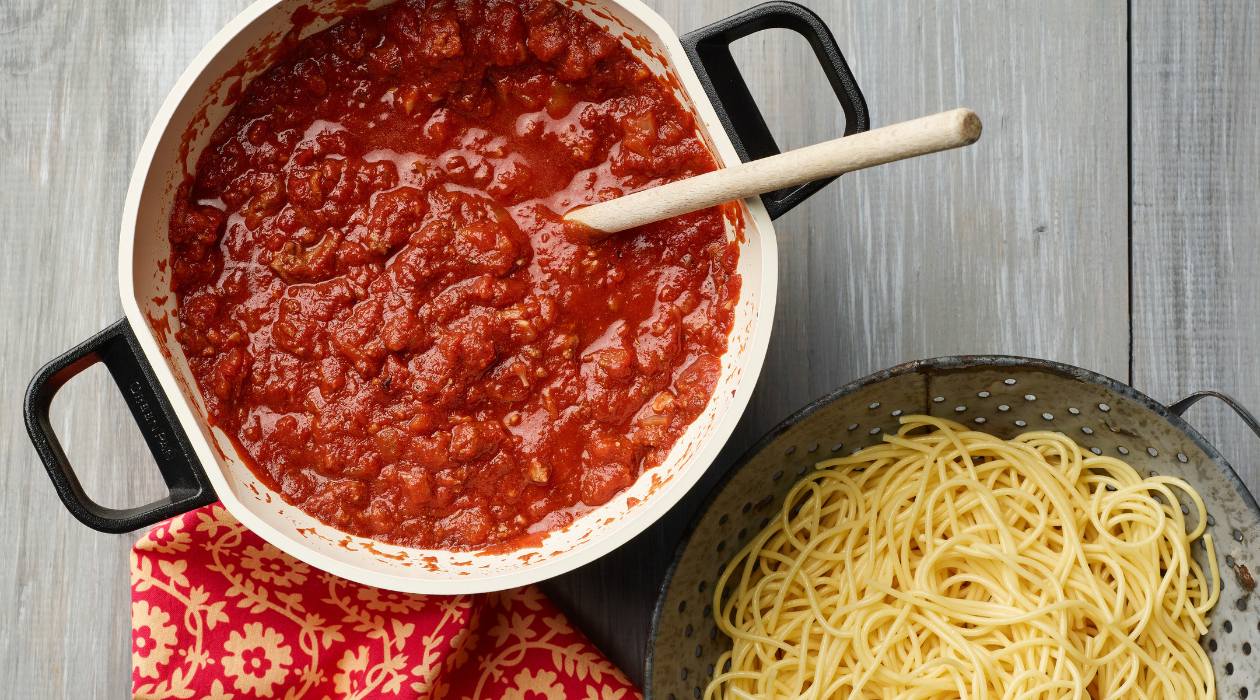
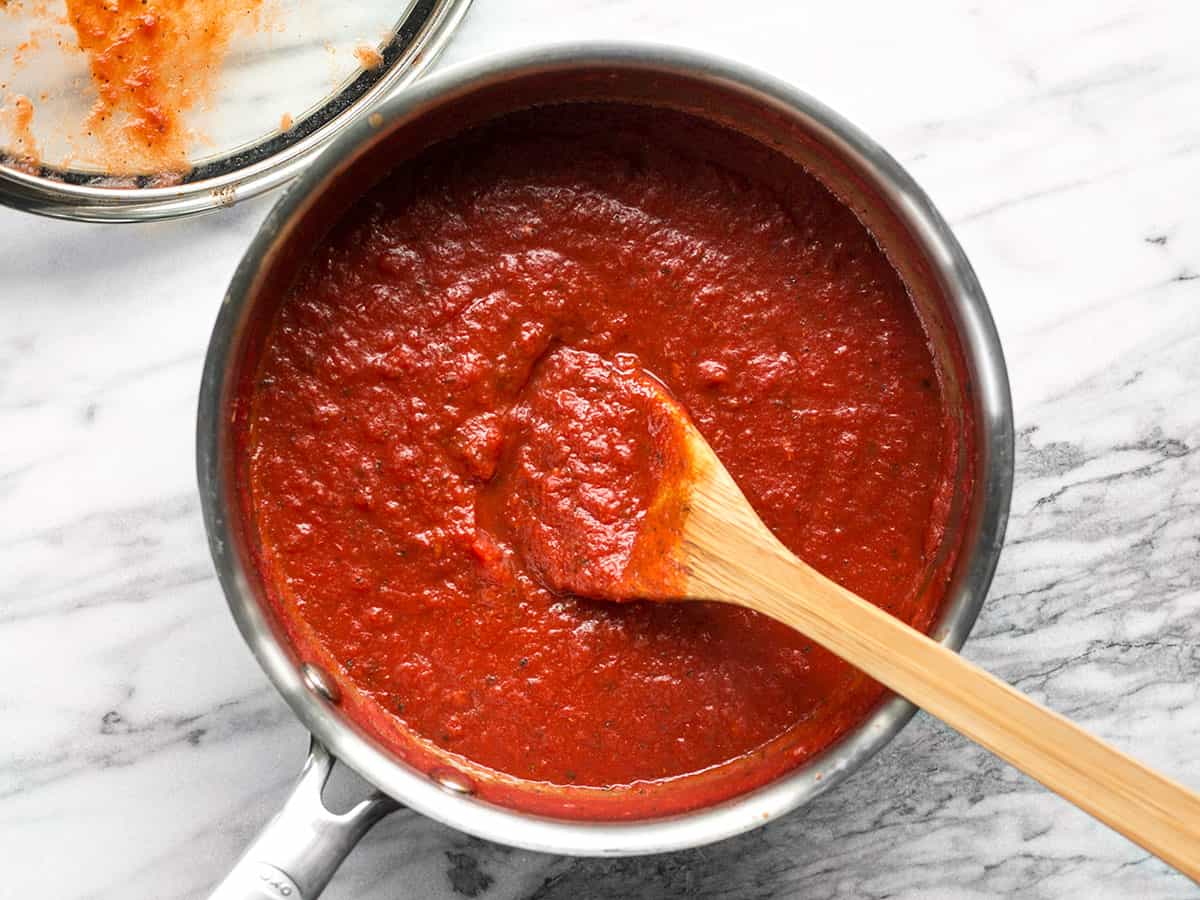

0 thoughts on “How To Store Homemade Sauces”